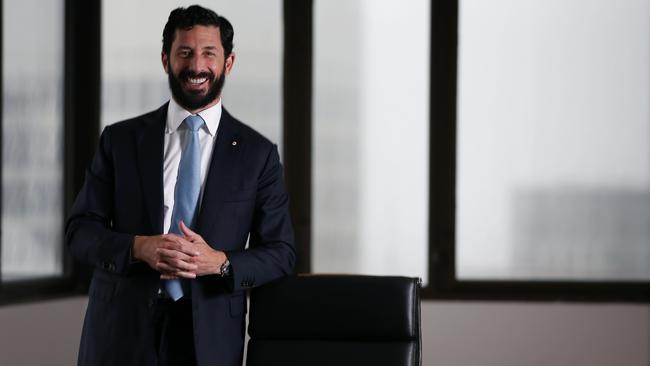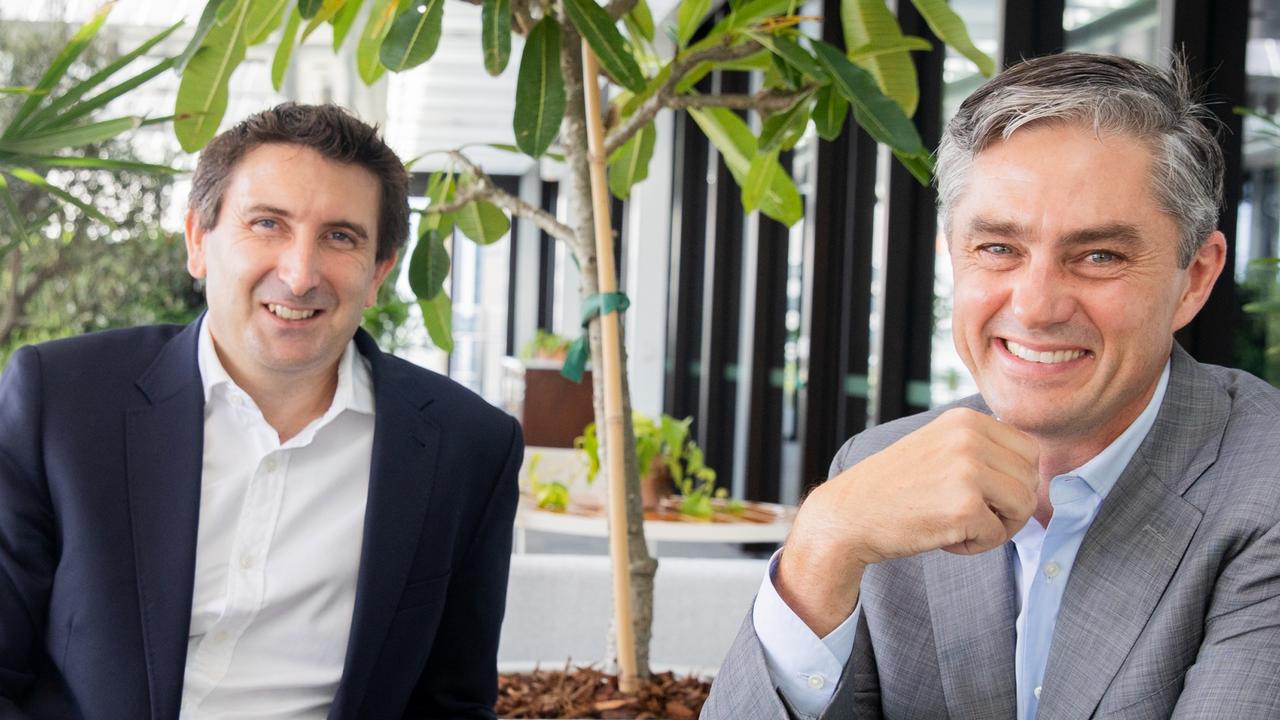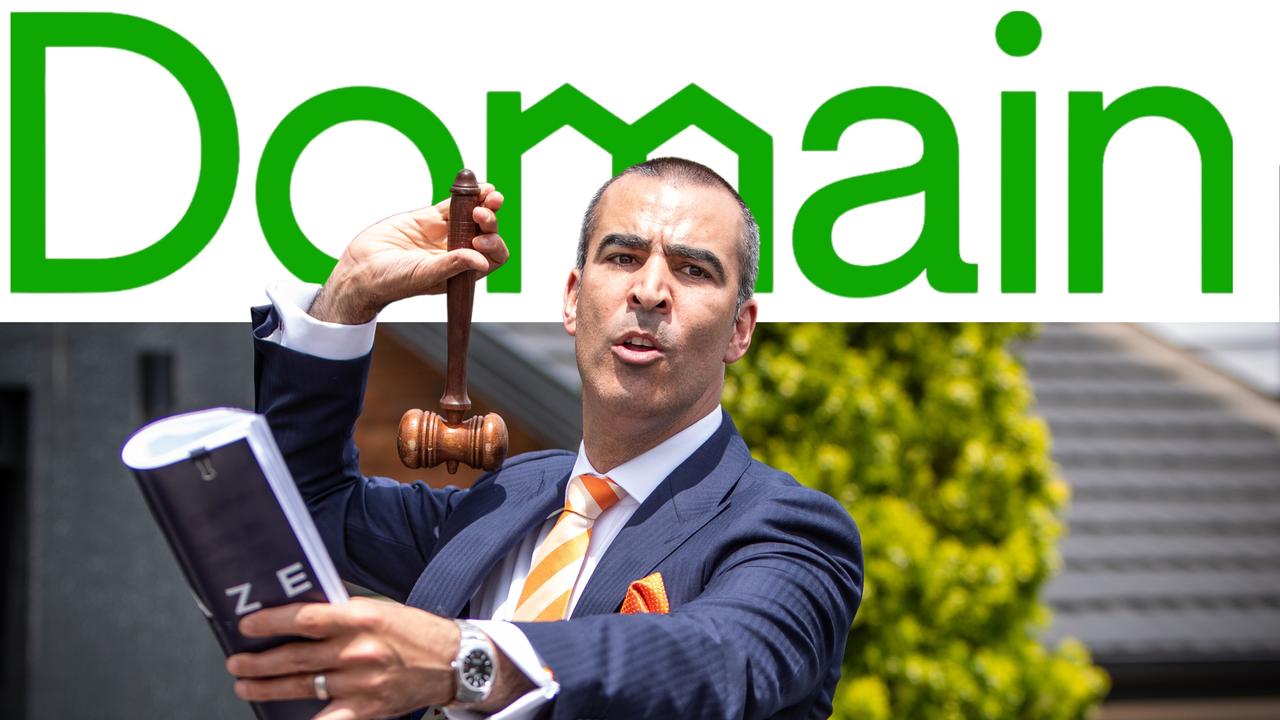Growing economy plays into Seven Group’s hands

Seven Group’s half-year result on Tuesday shows what a sound portfolio pick CEO Ryan Stokes now controls – one that should do well out of rising inflation.
Stokes says for the first time all assets have reasonable tailwinds of support, from industrial services to energy and even media. “Across the board it’s a dynamic where the benefits of economic activity are playing through quite favourably,” he says.
The Stokes forward plan is about performance and opportunity: hold management to account and make the most of the return of inflation.
Ryan Stokes also spoke to the Australian about the influential role The West Australian, owned by Seven West Media, had in the McGowan government’s decision to change its mind and open the border on March 3.
This is an important result for Stokes. In August his father and founder of the Seven Group, Kerry Stokes, stepped down as executive chairman.
It has been six months of hard transformation across Seven, particularly for Boral and Seven West Media. But unlike conglomerate Wesfarmers, Seven had no big retail assets that were hit by lockdowns and absenteeism.
Putting aside the windfall profit from the group’s 70 per cent takeover of Boral, underlying net profit from continuing operations rose 21.5 per cent to $302m.
This was a 4.7 per cent miss on consensus expectation and shares slipped back 2 per cent more than the market on the day. But Seven also gave full-year guidance for an increase of 8-10 per cent in profit. Given many Seven businesses are not fully owned, this shows a confidence from management.
WesTrac and Coates, core assets acquired long ago by Kerry Stokes, still bring in over half the group’s pre-tax earnings and are riding the mining activity from iron ore to new battery minerals. Every machine sourced from Caterpillar has a customer, with 640 machines on order.
The takeover of building materials business Boral takes the group in a new direction.
He says the pace at which Boral management under Zlatco Todorcevski has been able to pivot out of the US and reposition the company has meant the $2.9bn bridging loan to acquire Boral will be paid off in March.
Boral’s business is about the pipeline of domestic infrastructure construction. “We definitely see margin opportunity. We look at global and domestic players and we think there is significant upside for Boral there,” says Stokes, pointing to the precedent set by Coates, where ongoing discipline paid dividends.
At Boral’s results there were some raised eyebrows over the company’s quick decision to pass the spike in energy costs through to customers, but Stokes says there is now a greater acceptance from customers that inflation is now part of business.
He sees the past 15 years distorted by cheap capital and credit and leaps in technology. This year marks a return to traditional revenue growth to drive profit outcomes, where a pricing dynamic will come through. “It’s not a short-term issue. It is a return to a normal paradigm,” he says.
Another change in Seven’s favour has been gas, which has come into its own as the transition fuel for the economy.
Seven’s chief financial officer Richard Richards says the energy strategy evolved over four to five years. “We have been long energy directly and indirectly through Beach Energy. That is both in terms of east coast energy, where we will be a net beneficiary of the closing or reduction of coal generation, and our exposure to LNG through Beach, through the Perth Basin and our direct energy assets through Crux.”
Richards says the under-investment in exploration and development over the last decade, coupled with rising inflation, means the real cost of finding and producing energy is only going to increase. Companies with reserves will do well over the next decade.
Ryan Stokes agrees that his father’s decision to step down as executive chair is a big transition but he says working with Terry Davis, who has been on the board for 10 years, is business as usual. “Keep in mind just how strong our board is. There is no different view.
“There has never been an us versus them dynamic in what we think of shareholder value creation,” says Stokes.
He says his father retains a keen interest. Kerry Stokes also remains chairman of Seven West Media, in which the group has a 39 per cent stake.
Ryan Stokes says transformation at Seven West Media under CEO James Warburton is a great story that the market has yet to recognise fully.
“We see upside in that Seven West share price. The part that was overlooked in this half was just how much they have progressed the balance sheet repair,” he says. “The team have been disciplined on costs, really strong on execution to win the ratings year and that has all played through to the profit growth margin.”
Stokes believes Seven West can benefit from rising inflation that will boost advertising dollars from customers. “People need to chase revenue and you have to promote your brand and business. We think that will be quite favourable for traditional media when we go back to the normal inflationary environment.”
In WA, the continued influence of Seven West was on display last month. After Mike McGowan backflipped on a border opening in late January, the paper’s coverage of Australia’s most popular Premier turned cold.
“I think people in Western Australia felt that implicit agreement had been broken and the West Australian picked up on the mood swing and really tapped into that,” says Stokes. As a result, he says the online engagement with the paper by West Australians has been phenomenal.
Ahead of May’s federal election, Ryan Stokes is calling for a sensible debate on skilled migration and population growth. Watch this space.



